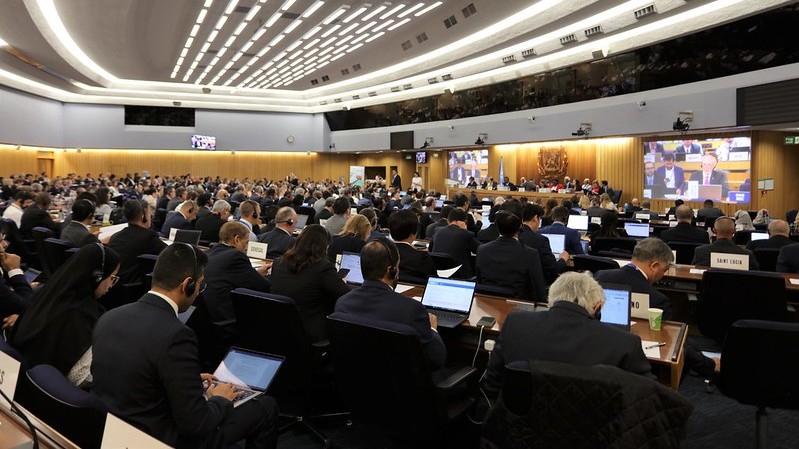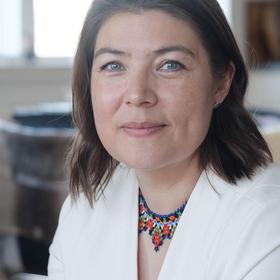Inuit Circumpolar Council granted permanent status at International Maritime Org.

After almost four years of holding provisional status at the International Maritime Organization, the group representing Inuit across the Arctic has now been granted a permanent seat at the table.
“This milestone affirms the critical role Inuit play as ship owners, operators, coastal residents, and knowledge holders in shaping international shipping decisions,” Herb Nakimayak, Executive Council Member and lead representative at the IMO for the Inuit Circumpolar Council, said.
“Becoming the first Indigenous Peoples Organization to gain Permanent Status at the IMO is not only a step forward for Inuit, but also a meaningful step forward for all Indigenous Peoples.”
ICC represents the approximately 180,000 Inuit in Alaska, Canada, Greenland, and Chukotka, Russia. It first gained provisional status at the IMO in November 2021.
This followed a years-long effort to secure a more formal presence at the international maritime body, which oversees global shipping regulations.
New status will help amplify Inuit concerns: ICC
Before ICC gained consultative status, Inuit representatives attended IMO meetings under the banner of relevant state delegations, such as Canada or the United States, or as part of non-governmental organizations.
However, at the time, ICC said these efforts were limited their ability to amplify Inuit concerns, especially in light of global interest in the Arctic and increased shipping in the North.

With the IMO granting ICC permanent status this month, ICC said Inuit will continue to have a critical role in shaping policies that influence their lands, waters, and livelihoods.
“From the safety of shipping routes to the protection of marine ecosystems, these decisions influence our ability to maintain our ways of life,” Sara Olsvig, Chair of the Inuit Circumpolar Council said in a statement.
“Gaining permanent consultative status at the IMO ensures that Inuit perspectives will continue to inform global shipping policy now and into the future.
“We are pleased that this decision recognizes that Inuit contribute with important and distinct policies and knowledge that enrich international discussions on marine governance.”
Write to Eilís Quinn at eilis.quinn(at)cbc.ca
Related stories from around the North:
Canada: Canada, U.S. and Finland form pact to build icebreakers for Arctic, CBC New
Norway: Hybrid-powered electric cruise ship navigates Northwest Passage, CBC News
Russia: New New Shipping, Rosatom to build container ships for year-round Arctic sailings, The Independent Barents Observer
United States: U.S. regulator eyes Arctic shipping chokehold as key deadline approaches, Eye on the Arctic



